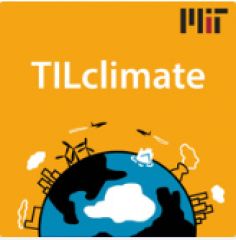Grade Level(s):
- 9-12
Source:
- MIT Climate Portal
Resource type:
- classroom activity
Discipline:
- Earth science
Time: up to 2 hours
Overview
Earth's climate system is enormously complex, and scientists develop climate models to understand how climate change will play out in different parts of the world. Students play a climate resilience game, and then explore the Intergovernmental Panel on Climate Change’s 5th Assessment Report to learn more about how climate scientists handle uncertainty in models.

- [What is science?: Grades 9-12] Because it has been tested, scientific knowledge is reliable. (NOS3)
- [How science works: Grades 9-12] The process of science involves observation, exploration, testing, communication, and application.
- [How science works: Grades 9-12] Scientists can test ideas about events and processes long past, very distant, and not directly observable.
- [How science works: Grades 9-12] Scientists use multiple research methods (experiments, observational research, comparative research, and modeling) to collect data. (P2, P3, P4, NOS1)
- [How science works: Grades 9-12] Scientists look for patterns in their observations and data. (P4, P5, NOS2)
- [What has science done for you lately: Grades 9-12] Scientific knowledge informs public policies and regulations that promote our health, safety, and environmental stewardship.
- [A scientific approach to life: Grades 9-12] Problem-solving and decision-making benefit from a scientific approach.
- NOS Matrix understanding category 1. Scientific investigations use a variety of methods.
- NOS Matrix understanding category 2. Scientific knowledge is based on empirical evidence.
- NOS Matrix understanding category 3. Scientific knowledge is open to revision in light of new evidence.
- Science and Engineering Practice 2. Developing and using models
- Science and Engineering Practice 4. Analyzing and interpreting data
- Science and Engineering Practice 5. Using mathematics and computational thinking
The podcast portion can be assigned as outside-of-class listening for flipped classrooms.
